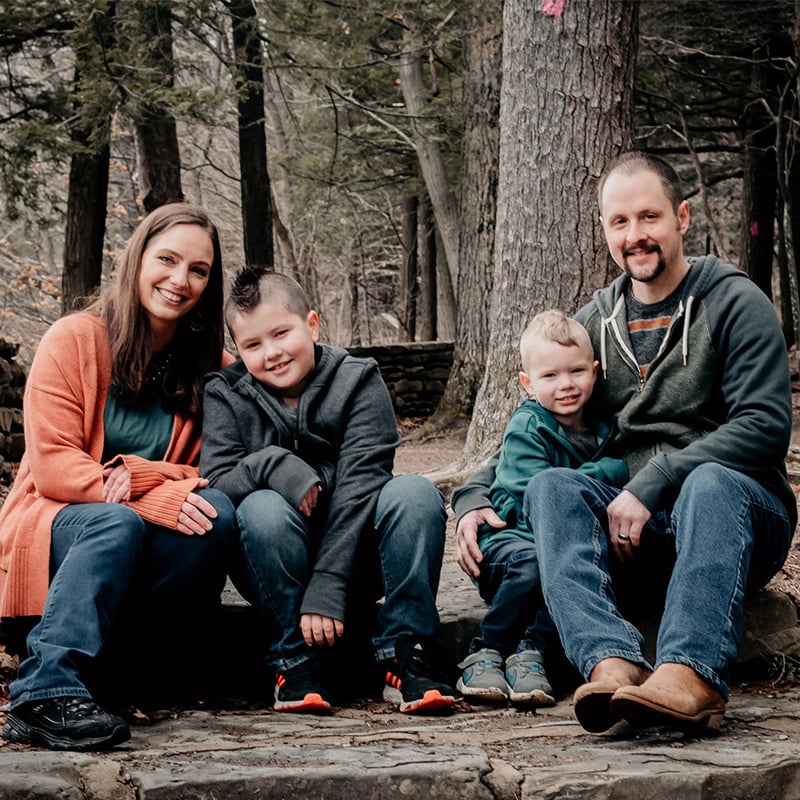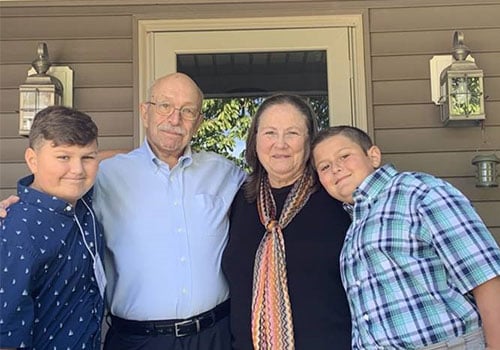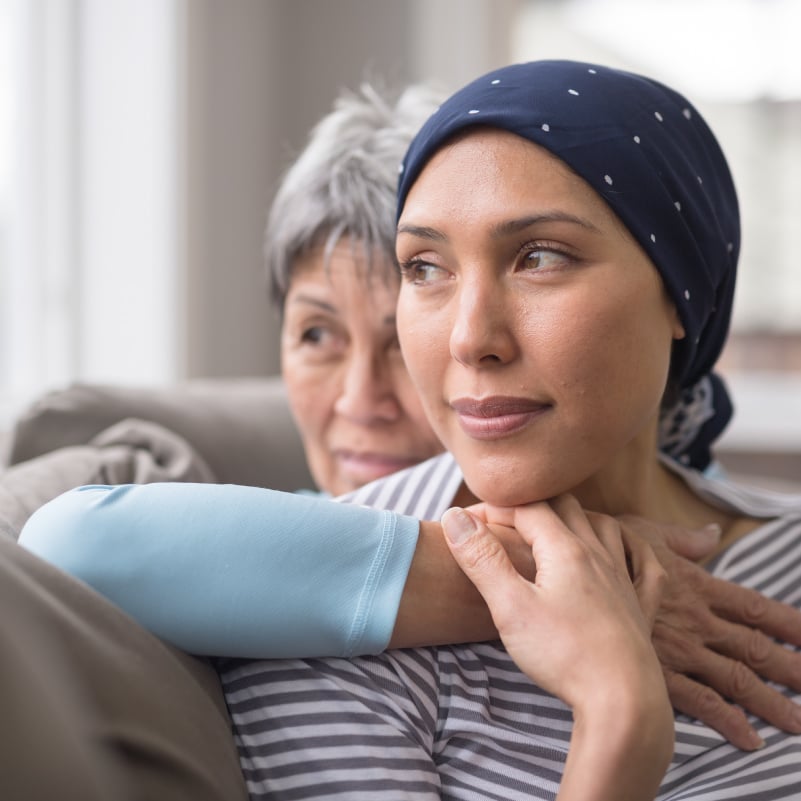Each patient who is treated for cancer goes through their own journey, adjusting to the many changes that come with a cancer diagnosis. Beyond the physical toll that cancer takes on a person, the toll it can take on one’s emotional wellbeing can be substantial – not only with diagnosis and treatment, but also into survivorship.
Mood concerns and changes in emotional health are common among patients dealing with cancer. In fact, research published in BMJ shows that cancer patients are at least twice as likely to experience depression and anxiety often compared to the general population.
This is why treating depression and anxiety in cancer patients and survivors is incorporated into the comprehensive care services at the Lipson Cancer Institute, and is the focus of our Collaborative Care program. Earon Lehning, LMSW, is an oncology collaborative care therapist who works Rochester Regional Health’s Lipson Cancer Institute and the Collaborative Care program.
Effects on patients
With patients who are newly diagnosed, going through treatment, or journeying into survivorship, three main emotional health conditions tend to come up consistently in conversations with therapists: anxiety, depression and grief. All of these can be connected with poorer physical outcomes.
Some patients see a therapist for reasons solely related to coping with their cancer diagnosis. Other patients may already have underlying mental health concerns that are exacerbated by their diagnosis, while other patients have never experienced counseling or psychiatry before.
For Lehning, at least half of all her patients are in survivorship or remission.
“It’s as if a person’s mental health catches up with what their body has been going through,” Lehning said. “People will describe their mindsets as ‘I thought I was okay but I’m not’ or are dealing with body changes, anxiety surrounding the potential for the cancer returning, grieving how changes are taking place and how they perceive life after surviving cancer.”
This diversity is what makes this particular pairing of oncology and behavioral health – called Collaborative Care – so interesting.
Comprehensive and Collaborative Care
The behavioral health model of collaborative care has been studied and shown to have statically significant improvement rates in oncology settings. Research through the AIMS Center in Seattle, Washington has proven to be immensely helpful for patients and sustains them through their treatment and recovery.
Collaborative Care combines the knowledge and experience of several different medical disciplines with the goal of helping individual patients move forward with their lives. The program creates a team for the patient and their primary care provider by pairing them with a therapist, oncologist, and psychiatric consultant.
“We are very fortunate to have support in our leadership,” Lehning said. “There is so much that social workers can add to patient care. Providers realize things like depression and anxiety are connected with poorer physical outcomes; integrating social workers into patient care can make a huge difference in their physical outcomes and overall quality of life.”
Since the start of the COVID-19 pandemic, psychiatrists and psychologists have seen a dramatic increase in the number of patients they are seeing. With barriers such as lack of available appointments, access and cost of private mental health services, Collaborative Care is a way to bridge this gap without needing to go outside of the cancer center for care.
Treatment & support
Treatment is individualized, allowing for flexibility based on each patient’s situation. Once referred to the Collaborative Care program, patients can enroll for talk therapy, brief check-ins, medication management – or all three.
Therapists will meet with the patient’s care team to review cases on a weekly basis and discuss recommendations for any changes in their care. The patient is an active part of the decision.
Example 1: A patient is struggling with depression and lacks the motivation to do things – resulting in her laundry piling up. Using behavioral activation and problem-solving treatments, the patient will work with her therapist to break down her daily behaviors and set small goals with the ultimate goal of getting the laundry done.
Example 2: A cancer survivor is exercising to the point where it is becoming unhealthy for her. However, the patient does not view the behavior as unhealthy; her anxiety creates a mentality of exercise being a way to keep her body healthy and prevent cancer from returning. The therapist will work with the patient to identify cognitive distortions related to exercise and disease reoccurrence and then helps to challenge these maladaptive thoughts/beliefs with the ultimate goal of the patient using healthy coping strategies in a more balanced manner.
“Each treatment is tailored and very specific to the patient,” Lehning said. “We try to meet them where they are at.”
Therapists provide patients with the option to do Collaborative Care visits via telemedicine, over the phone, or with in-person visits in an office.
Getting onboard
Patients are screened for the program based on eligibility requirements. Providers can either refer the patient to the Collaborative Care team, or reach out directly to make a referral to a social worker. The social worker will then call the patient and have a conversation with them to gauge their level of interest in the program and introduce them to the various support services available.
Therapists will spend the first few sessions getting to know the patient. During those initial visits, they will use screening and assessment tools from the National Comprehensive Cancer Network – including the PHQ9 and GAD7 – to measure levels of depression and anxiety. They will then work with the patient on setting goals to reduce their overall score and sustain that reduced level for at least 3 months before discharging them from the program.
“Having support available in any form possible is integral for patients throughout their cancer journey,” Lehning said. “Patients may be hesitant to ask for more resources or advocate for themselves in general. Asking for more help is never something to be ashamed of. Persistence in pursuit of your own health care is something to be encouraged.”









